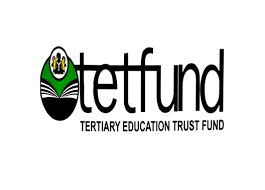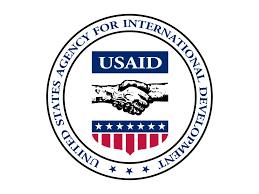News
Towards reforming Nigeria’s civil service

By Adémólá Òrúnbon
It is the tradition that whenever a new government whether autocratic or democratic is formed, they come along with their agenda, policies and programmes. As the most vital machinery of government, it is the responsibility of the Civil Service to drive the implementation of these policies and programmes because; a committed civil service is the best vehicle for carrying out and explaining to the people the policies and intentions of the government.
According to Warren Fisher in his report of the British Royal Commission on the civil service in 1929: “Determination of policy is the function of Ministers; and once a policy is determined, it is unquestioned and unquestionable business of the civil servant to strive to carry out that policy with precisely the same good will, whether he agrees with it or not.”
In other words, the basic roles of civil service and civil servant are to assist the government in the formulation of policy by providing the necessary data, implement the decisions (that is, the approved policies) without fear or favour, and ensure that when advising government the civil servant sets out the wider and more enduring considerations against the exigencies of the moment so that the conveniences of today do not become the embarrassment of tomorrow.
According to several historians, the first true bureaucracies arose in response to the need to regulate water in the great river valleys, particularly those of the Nile, the Tigris and Euphrates, the Indus and the Yellow River. If these water sources supplied the lifeblood of the civilisations they nurtured, those who monitored their flow and supervised their distribution into complex irrigation systems constituted the lifeblood of government. In the millennia that have since passed, this characteristic has remained as the functions of government have multiplied.
Governments themselves have changed and evolved new forms of organisation, management and supervision, motivation and remuneration, some functional in terms of serving the needs of their peoples, some catastrophic in their inefficiency, greed, or oppression. Over the last fourteen years or so, I have had the opportunity of studying the Nigerian Civil Service at close quarters and reflecting on its critical role in national development. It is apt to conclude that the service as presently constituted possesses neither the capacity nor readiness to be in the frontline of government service delivery to the public.
It is on record that the performance of the Civil Service in its policy and technical support to government and the delivery of service to the public in the period from the colonial era up to the mid 1970s, was of high standard, even by international comparison. The high rating in both effectiveness and efficiency was at both the Federal and Regional/State levels. From the mid-1970s, however, the performance of the service began to deteriorate progressively and this dismal performance has since peaked at a scandalous level. Some of the critical factors responsible for this debilitating state of affairs include the absence of key modern competences and skilled human capital resources.
For government policies and national development strategies to have any impact, the Nigerian civil service needs to be subjected to significant root and branch reform that is revolutionary in nature as against successive reforms of the past that were no more than addressing the symptoms rather than the cause. The Nigerian civil service as the leading government bureaucracy that makes conducting private business difficult needs innovative and ground-breaking makeover that will lead to a more effective and productive public sector that will support the private sector led economic transformation strategy.
Social justice demands that we at all times make the correlation between superior living standards and quality of life, and the need for a more effective and more productive civil service. However, a strong civil service does not in any way imply a bulky civil service, just like a strong Armed Forces does not mean a huge Armed Forces. A strong civil service is one that is efficient, forward-looking and seeks to excel. Such a service has an organizational culture that is responsible, innovative and service-oriented.
Without a strong and forward-looking civil service, the private sector will be unable to achieve its own potential. A strong civil service is an unconditional prerequisite for a strong academia, a superb educational system and regulatory and structural reforms in different market sectors.
The social justice protests that have and are still taking place intermittently across the country are a golden opportunity to harness the rage, frustration and disappointment of many Nigerians to change the public dialogue and create a new system of social trust and values. It is a chance for the public to demand that the government make the civil service/public sector more efficient and to shift focus of public servants toward serving their clients, the tax-paying public. It is also a chance for Nigerians to demand that the service cleans its Augean stable and do away with the grand corruption of its Resident Consultant and its pension thieves.
Òrúnbon a journalist, poet, and public affairs analyst, writes from Epe, Lagos State, Nigeria. He can be reached via: [email protected], 08034493944 or 08029301122.
News
AOJOKO K’Otukpo defends TETFUND executive secretary amidst criticism: calls for support in revamping tertiary education


A pressure group known as AOJOKO K’Otukpo (Special Advisers to Otukpo Kingdom Paramount ruler) has asserted that Arch. Sonny Echono, Executive Secretary (ES) of the Tertiary Tertiary Education Trust Fund (TETFUND), is spearheading the revitalization of the country’s tertiary education.
Mr. Ojoko Ekwo, the Chairman of the group, revealed this during a press conference held in Makurdi on Sunday.
Ekwo, responding to media publications criticizing Echono for awarding contracts without the existence of a board, emphasized the need for support from all Nigerians for the ES to succeed.
He clarified that although TETFUND currently lacks a constituted board, there are provisions in place empowering the organization’s management to award contracts in such circumstances.
“Regardless of the absence of a board, TETFUND cannot remain idle but must continue operating in accordance with established laws,” Ekwo stated.
“The recent allegations against Arch. Echono, regarding contract awards in the absence of a board, raise significant questions: Should an organization halt its activities simply due to the absence of a board? In the absence of a board, are there no institutional regulations to follow? Were such regulations not adhered to?”
Ekwo criticized the media’s rush to incite public outcry against Echono without conducting thorough investigations. He noted that even after TETFUND responded to inquiries, the media persisted with their preconceived narrative, suggesting a potential bias.
“They failed to seek clarification from the Ministry of Education, which oversees TETFUND,” Ekwo added.
“Echono should be allowed to continue his commendable efforts in educational development, including the rejuvenation of dilapidated facilities and infrastructure in tertiary institutions, for which he is already receiving praise from well-meaning Nigerians.”
Ekwo suggested that the criticism directed at the ES was merely a backlash from those who had previously exploited TETFUND for personal gain.
He called upon the Ministry of Education and President Bola Tinubu to disregard such publications and continue supporting the ES in his endeavors to advance the educational sector.
News
Nigerian Minister advocates Oil and Gas investment for economic recovery


Mr. Heineken Lokpobiri, the Minister of State for Petroleum Resources (Oil), emphasized the pivotal role of oil and gas investment in driving Nigeria’s economic recovery. Speaking to journalists during the 2024 Offshore Technology Conference (OTC) in Houston, Texas, on Monday, Lokpobiri underscored the necessity of exploiting Nigeria’s abundant oil and gas reserves to stimulate economic growth.
“The vast oil and gas deposits of our nation hold immense potential for economic revitalization,” Lokpobiri stated. “However, their full potential can only be realized through proactive exploration and investment.”
Assuring investors of the longevity of oil’s relevance, Lokpobiri highlighted the government’s commitment to fostering an enabling environment conducive to attracting optimal investment. He credited President Bola Tinubu’s administration for implementing strategic initiatives that have positively impacted the sector’s trajectory, refuting claims of oil’s impending irrelevance.
Encouraging investors to capitalize on the ongoing oil bid round, Lokpobiri emphasized the enduring significance of fossil fuels in the global energy landscape. “History has shown that no energy source becomes obsolete overnight. Fossil fuels will continue to play a significant role,” he affirmed.
Lokpobiri affirmed the government’s dedication to streamlining regulatory frameworks, promoting competitiveness, and eliminating investment barriers to instill confidence among investors. “Nigeria stands ready to engage with the global community, showcasing our commitment to fostering a conducive investment climate,” he asserted.
In a significant policy announcement, Lokpobiri disclosed the abolition of signature bonus payments for new investors in the oil and gas sector. Signature bonuses, traditionally paid by license holders to the government upon obtaining petroleum exploration licenses, have often posed challenges for investors due to their substantial financial burden.
To facilitate smoother entry into exploration and production activities, Lokpobiri revealed that future signature bonus payments would be contingent upon immediate operational engagement by new entrants. “We are prioritizing active utilization of awarded fields to stimulate job creation and drive upstream oil sector growth,” he explained.
Notable attendees at the conference included Mr. Gbenga Komolafe, Chief Executive of the Nigerian Upstream Petroleum Regulatory Commission (NUPRC); Dr. Uchechukwu Sampson Ogah, former Minister of State for Solid Minerals; and Dr. Gabriel Ogbechie, Group Managing Director of Rainoil Ltd.
News
JAMB releases additional UTME results, assures integrity amid misconduct allegations


The Joint Admissions and Matriculation Board (JAMB) has released an additional 531 results from the recently conducted Unified Tertiary Matriculation Examinations (UTME), bringing the total number of released results to 1,842,897.
This announcement was made by Dr. Fabian Benjamin, the Public Communication Advisor of the Board, in a statement issued on Tuesday in Abuja.
Benjamin explained that the Board had proceeded with the screening of over 64,000 withheld results due to cases of examination misconduct. “During the screening process, we identified further cases of examination misconduct, totaling 92 cases from the initial 81 discovered,” he stated.
He also addressed concerns regarding unverified candidates, mentioning that the Board is actively addressing these cases and will provide updates soon.
Benjamin emphasized the Board’s commitment to maintaining the integrity of the examination process and dispelled rumors regarding the scoring of an unknown candidate who allegedly did not sit for the 2024 UTME. He urged the public to disregard such false claims, describing them as malicious attempts to undermine the Board’s credibility.
He further explained that the Board has observed an increase in misleading publications, particularly during this period, and cautioned candidates against sharing their confidential details with third parties.
Addressing allegations of result tampering, Benjamin clarified that some individuals have been altering results obtained by other candidates and passing them off as authentic. He challenged anyone making such claims to provide concrete evidence, including details of the alleged results and the corresponding phone numbers used for communication.
To enhance result security, Benjamin announced plans to introduce additional features such as registration numbers to the UTME result checking process. He advised candidates to safeguard their information and warned of consequences for those found engaging with individuals attempting to manipulate results.
Regarding result inquiries, Benjamin reiterated that the approved method for checking 2024 UTME results is by sending “UTMERESULT” to either 55019 or 66019, cautioning against alternative methods. He clarified that the results are not currently available on the Board’s website.
In conclusion, Benjamin reassured the public that the integrity of JAMB’s systems remains intact and pledged to continue safeguarding against malicious actors seeking to disrupt the examination process.
-
capital market2 years ago
Rt.briscoe, FBNH, Others halts negative performance of stock market
-
Finance3 months ago
Court orders Sen. Victor Umeh to repay N136m bank debt to AMCON
-



 Abuja Update2 months ago
Abuja Update2 months agoUNDP, FG partnership needed to achieve inclusion, equity- Minister
-
Abuja Update1 month ago
Banks drive stock market performance with N147bn gain
-



 Business2 weeks ago
Business2 weeks agoTingo Group unveils Tingo Electric, Tingo Cola drink at Lagos launch
-



 Health3 weeks ago
Health3 weeks agoCapacity training will reduce migration of health workers- NPHCDA
-
News4 months ago
Oil thieves sponsoring malicious media campaign against Navy – Spokesman
-



 Infotech1 month ago
Infotech1 month agoWorld Backup Day: NITDA urges Nigerians to ensure backup of data
















